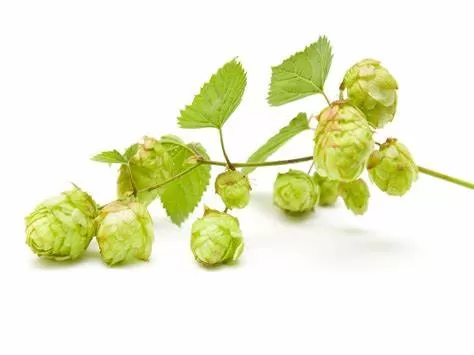- 0086-571-85302990
- sales@greenskybio.com
Are Hops Good for Your Liver?
2025-04-02
Hops, scientifically known as Humulus lupulus, are well-known for their use in the brewing industry to add flavor and aroma to beer. However, the potential health benefits of hops extend far beyond their role in making your favorite beverage. Among their numerous benefits, hops have been studied for their impact on liver health, raising the question: Are hops good for your liver? This article explores the evidence surrounding hops and liver health, discussing their chemical composition, possible benefits, and considerations for consumption.
Understanding Hops
Hops are the female flowers (seed cones) of the hop plant, primarily grown in Europe and North America. These cones are rich in several bioactive compounds, including flavonoids, xanthohumol, humulene, and lupulone. Xanthohumol is particularly notable for its promising health properties, including anti-inflammatory, antioxidant, and anticancer effects.
The Role of the Liver
The liver is an essential organ responsible for detoxifying the body, metabolizing nutrients, producing proteins, and regulating biochemical pathways crucial for digestion and overall health. It processes toxins and waste products, turning them into less harmful substances that can be excreted from the body. Maintaining liver health is vital for preventing liver diseases like fatty liver disease, hepatitis, and cirrhosis, which can severely impact overall health.
Potential Benefits of Hops for Liver Health
1. Anti-Inflammatory Properties
Chronic inflammation is a common pathway for liver damage, contributing to conditions like fatty liver disease and hepatitis. Hops contain compounds such as xanthohumol, which have been shown to exhibit anti-inflammatory effects. These properties can help mitigate liver inflammation and might prevent or slow down the progression of liver-related health issues.
2. Antioxidant Activity
Oxidative stress, resulting from an imbalance between free radicals and antioxidants, is detrimental to liver health and can lead to cell damage. Hops are rich in antioxidants, which help neutralize free radicals and protect liver cells from oxidative damage. Xanthohumol and other flavonoids in hops act as potent antioxidants that preserve liver function and support cellular health.
3. Detoxification Support
The liver is the body's primary detoxification organ. Hops, with their diverse range of bioactive compounds, may assist in enhancing the liver's detoxification capabilities. Studies suggest that certain compounds in hops could potentially activate pathways involved in detoxification processes, improving the liver's ability to process and excrete toxins.
4. Potential Role in Cancer Prevention
Emerging research indicates that xanthohumol from hops may have anticancer effects, including inhibiting the growth of cancer cells and preventing carcinogenesis. While the direct implications for liver cancer are still being researched, these properties hint at the potential protective role hops might have against liver carcinogenesis.
5. Liver Enzyme Regulation
Evidence suggests that hops may influence certain liver enzymes involved in metabolism. These enzymes play a crucial role in converting fats, proteins, and carbohydrates into energy and breaking down toxic substances. By supporting enzyme activity, hops might aid in maintaining optimal liver function.
Scientific Studies and Evidence
While preclinical studies and experiments indicate promising benefits of hops for liver health, human research is still emerging. Animal studies have shown positive effects on liver conditions, such as reducing fatty deposits and preventing inflammation. Some studies suggest xanthohumol can reduce oxidative stress markers in various organs, including the liver. However, clinical trials involving humans are needed to validate these findings and establish safety guidelines and effective dosages.
Safety and Considerations
Despite the potential liver health benefits, hops consumption requires caution:
1. Alcohol Content in Beer
While hops are a primary ingredient in beer, the alcohol content in beer can counteract the potential liver benefits. Alcohol consumption, particularly excessive intake, is detrimental to liver health and can lead to liver disease. Therefore, any potential benefits from the hops in beer should be weighed against the risks of alcohol.
2. Allergies and Drug Interactions
Individuals who have allergies to plants in the Cannabaceae family, which includes cannabis, may also be susceptible to allergic reactions to hops. Additionally, hops may interact with certain medications, particularly those metabolized by the liver, affecting their efficacy. Consultation with a healthcare provider before incorporating hops supplements is advisable.
3. Method of Consumption
While beer is the most common product containing hops, hops supplements or teas are alternatives that bypass alcohol risks entirely. Choosing high-quality products from reputable brands ensures purity and potency.
Conclusion
While research is still developing, hops offer promising potential in supporting liver health through their anti-inflammatory, antioxidant, and detoxification-enhancing properties. However, the manner in which they are consumed, particularly when combined with alcohol, impacts their liver health benefits. As scientific studies continue to explore the multifaceted role of hops in liver health, their potential as a natural remedy could expand. By considering safety guidelines and consulting with healthcare professionals, individuals can explore hops as a complement to a balanced and healthy lifestyle aimed at supporting liver function.
-
Main Purpose of Hops: Beyond Beer Brewing
2025-04-02
-
What does hops do to the brain?
2025-04-02
-
Does hops boost testosterone?
2025-04-02
-
Does Hops Extract Make You Sleepy?
2025-04-02
-
What Do Hops Do for the Body?
2025-04-02














